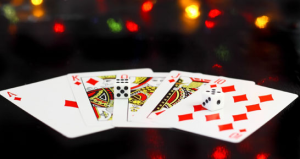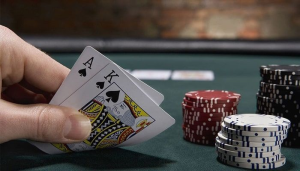Poker is not just a game of skill and strategy, but also a psychological battle. To succeed in poker, in addition to understanding the rules and strategies, you need to know how to read your opponents and understand their psychology. Every player has subtle signals that they unintentionally show while playing, and your job is to analyze these signals to make the right decision. If after tải sun win, you don’t know where to start, try learning about poker first.
Why Is Psychology Important in Poker?
Poker is a game of incomplete information. Each player can only see their own cards and a limited number of the opponent’s cards. Therefore, understanding your opponent’s psychology and behavior can help you make better decisions in uncertain situations.
Poker psychology is not only helpful in identifying when your opponent has a strong hand, but it also allows you to adjust your strategy to create an advantage. In fact, understanding your opponent’s psychology is often more important than simply knowing the rules, as it can create opportunities for you to “read” hands that others may miss.
Psychological Signals to Read Your Opponents
There are many ways to “read” an opponent in poker, from how they bet to how they react in different situations. Below are some common psychological signals to pay attention to:
Body Language and Physical Cues
Every player has their own unique gestures and expressions when playing poker. Here are some signs to watch out for:
- Eye pressure: If your opponent avoids making eye contact during the hand, they might be hiding something or feeling uncertain. On the other hand, if they stare at you while betting, they may be trying to apply pressure.
- Touching the cards: A new player may often touch their cards to check or even twist them. This is a sign of nervousness or lack of confidence.
- Facial expressions: Expressions like biting lips, furrowing eyebrows, or pursing lips can indicate that the opponent is facing a difficult decision.
Betting Behavior
Your opponent’s betting behavior can reveal a lot about their hand. The following actions can provide valuable insights:
- Large bets: If an opponent suddenly makes a large bet, it could indicate they have a strong hand and are trying to intimidate you. However, they could also be bluffing, betting big even with a weak hand.
- Small bets: Conversely, if an opponent bets small and seems unconcerned with the outcome, they might be hiding a strong hand or simply testing your reaction.
- Check-call (Check and Call): If your opponent only calls when you bet, it may indicate a weak hand, but they are still hoping to improve with the next card.
Betting Speed
The speed at which an opponent makes decisions can also be an important clue. Players with a strong hand tend to act quickly and decisively, while those with a weak hand may hesitate or bet slowly. Of course, this is not always the case, as some players are very skilled at disguising their emotions by varying their betting speed.
Analyzing Opponents’ Psychology in Specific Situations

Patient Opponents
A patient opponent tends to stay calm and wait for the right opportunities. They do not make hasty moves and will only act when they have a strong hand or feel the odds are in their favor. When facing such a player, you need to be cautious and avoid taking unnecessary risks.
Risk-Loving Opponents
A risk-loving opponent tends to bet aggressively and is not afraid to make bold decisions. This player may have a strong hand or simply be trying to confuse you to put you in a difficult situation. To counter this, you need to know when to play cautiously and when to challenge them with an appropriate strategy.
Opponents Under Stress
When an opponent shows signs of stress, such as trembling hands or anxious facial expressions, they may be dealing with a tough decision. This is when you can take advantage by betting aggressively to pressure them into making a decision. However, you must be careful, as some players are very good at hiding their emotions.
Opponents with Unpredictable Strategies
An opponent with an unpredictable playstyle can be a big threat. These players don’t follow a clear strategy and may switch from playing conservatively to being reckless. To deal with them, you must maintain a solid strategy and avoid getting caught up in uncertain decisions.
Tips to Increase Your Winning Rate Using Psychology

To increase your winning rate in poker, you not only need to develop your skills in reading opponents, but also apply psychological tactics:
Don’t let your opponent read you
If you want to win, you need to control yourself. Make sure that you don’t reveal emotions through actions or facial expressions.
Know when to fake weakness
If you have a weak hand, sometimes it’s best to pretend to be weak in order to lure your opponent into a trap.
Apply pressure
If you notice that your opponent is in a weak position, don’t hesitate to apply pressure by betting heavily, making them feel they need to fold.
Know when to fold
Sometimes folding is the best strategy, especially when you feel that your opponent has a stronger hand and is trying to bluff you.
Conclusion
Poker psychology is a crucial element in the game. Being able to read your opponents not only helps you make the right decisions, but also allows you to control the flow of the game better. While poker skills can help you win many hands, the ability to read your opponent’s psychology will be the deciding factor in becoming a better player. Always remember that xì tố is not just a game of cards, but a game of strategy, observation, and psychology.

